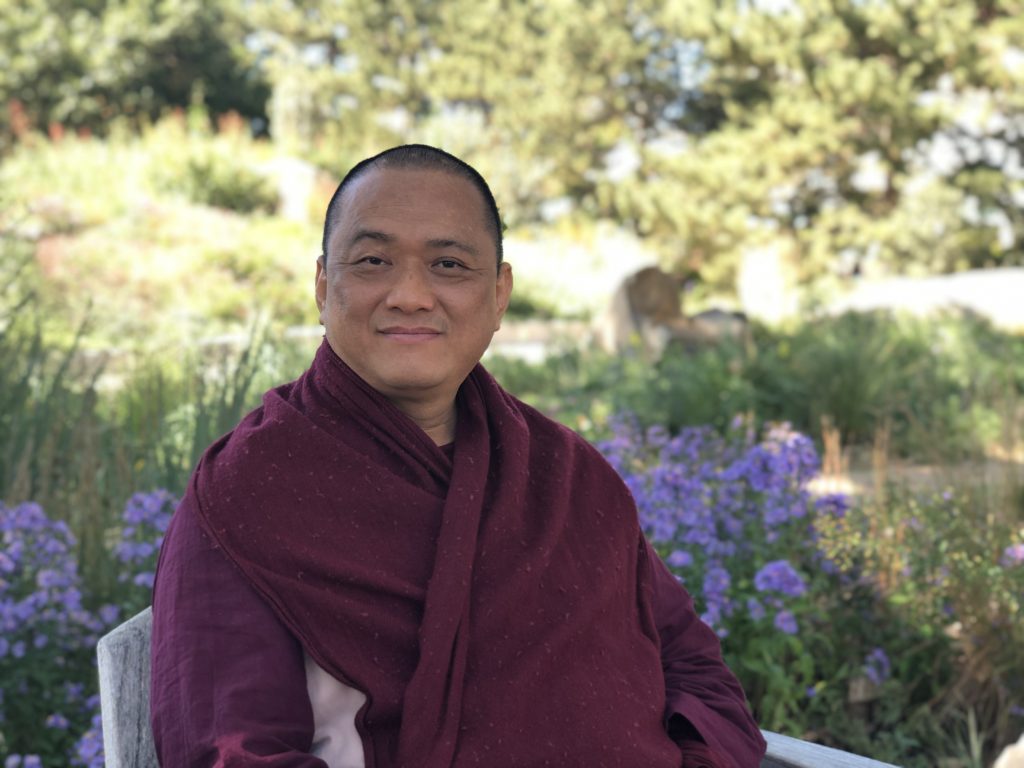The Buddha Day in 2020 is very special. The Buddha Day, also known as Vesak day, is on a full moon day in the month of May. In Chinese Buddhism, it is also called the Bathing of the Buddha Festival, or Buddha’s Birthday, which falls on the 8th day of April on the Lunar Calendar. The differences are primarily from records of different traditions in Indian Buddhism.
According to different Buddhist traditions, some consider Buddha’s birth, enlightenment (Buddhahood), and death (Parinirvāna) as three separate days. A decision was made later by the World Fellowship of Buddhists to celebrate the full-moon day in May as the Buddha Day, to commemorate the birth, enlightenment (Buddhahood), and death (Parinirvāna) of the Buddha altogether. This is based on the literature from Theravada Buddhism/ Southern Buddhism.
Nonetheless, a date needs to be selected. It may seem inconceivable to some that discrepancies exist on the date of such a sacred day. As a matter of fact, disagreement on important religious days also occurs in other religions other than Buddhism, a known fact to people who have studied the history of religions.
The Buddha Day, also called Vesak Day in the early days, is a reminder to all of us to recollect Buddha’s merits and virtues. In the suttas, the Buddha has mentioned the reason for the Buddha to appear in the human world. According to Saṃyutta Nikāya or Saṃyukta-Āgama, that is because human beings have been undergoing the sufferings of birth, aging, sickness and death. All Buddhas make their appearances in the human world to guide beings to see their sufferings and afflictions (Pali: kilesas).
The sufferings mentioned here refers to not only the physical painful sensations, but more often the sufferings caused by our own afflictions. For instance, our physical body is a kind of resultants from the past kammas. As long as you have this body, you will have to deal with sufferings of birth, aging, sickness and death. Since we are born, we are aging gradually every day, each hour and every minute. The progress of continuous aging, and the possibilities of contracting diseases, just like the COVID-19 pandemic nowadays, inflict sufferings on us. Those who are not infected are experiencing mental distress and the discomfort under social distancing and quarantine restrictions. However, the situation is much worse for those who have unfortunately contracted the virus, who have to undergo the complications of fear, trepidation, and tremendous bodily sufferings — something that is hard for us otherwise healthy people to fathom.
Though we know that the pandemic is occurring around, it may seem somehow far from us until, in an unfortunate case, a familiar friend is sick and suffering. You would identify with a more close relation with this circumstance, and be pressed by a sense of urgency.
Recently, I have been told that some friends have unfortunately contracted the virus, and some have lost their lives. We start to feel that it is more related to ourselves. This feeling comes from looking at things from a perspective of me. While we develop a sense of urgency, it is more likely for us to engage in careful considerations into the importance of our lives and of our health. This is ‘maraṇānussati’ taught by the Buddha. A practitioner who practice maraṇānussati correctly will have a sense of urgency and therefore treasuring lives. This sense of urgency can eliminate and purify many afflictions we have. The thought that we will live long or the habit of excessive thinking would generate worries and afflictions.
Maraṇānussati will help to peel off and purify (these afflictions). It reminds you about the value of life, and transforms you to become more diligent in making good use of this life on things that are meaningful, such as the cultivation of merits, of wisdom, our practice, fostering benevolence and warding off unhealthy connections.
Shakyamuni Buddha appears in the human world and it is the same for Buddhas in the past and Buddhas in the future. Since seeing the suffering of birth, aging, sickness and death, physical sufferings, and even mental sufferings and after knowing the sufferings according to what it is, we need to further investigate the causes of suffering. This is the noble truth of Suffering and the noble truth of the Cause of Suffering. The study of the Eightfold Noble Path,Samatha andVipassanā, and the Threefold Training (virtue, mind and wisdom), is the Path to the Cessation of Suffering. The Cessation of Suffering is dependent on the noble truth of the Path .
We’d better reflect on our own mortalities, and engage in cultivating merits, Samatha and Vipassanā. For a beginner, you need to give yourself some homework each day, comprising the cultivation of merits and the practice of Samatha and Vipassanā. For people who haven’t learnt Samatha and Vipassanā, you need to at least accumulate some merits. People who have practised Samatha and Vipassanā, it would be better to have fixed meditation practices of at least 15 minutes for beginners, and of minimum of half an hour to one hour for experienced practitioners, including contemplation in daily life. And you can develop a good habit out of those practices. With repeated efforts in the cultivation of merits and mind, we gain powerful tendencies in the good.
The root of the word Buddha isBudh, meaning awakening. The realization of the mortality of life is a state of awakening. Knowing how to cultivate merits proactively is a state of awakening. Engaging in developing Samatha and Vipassanā is a state of awakening.
Buddha Day is to remind us to develop awakening – to cultivate merits actively. Merits are the only belongings we could bring to the next lives and continue to live upon it. Other forms of belongings will part with us once life is over, and would be left to benefit the alive. Only the wholesome kammas ( including unwholesome karmas) can be taken away.
Awakening is multilevel with the highest lies within the experience of Samatha and Vipassanā. The cultivation of Samatha enables us to reduce or temporarily suppress the five hindrances, and then one can start off to focus on developing vipassanā knowledge. It is vipassanā knowledge that touches the highest level of awakening capacities. If possible, I encourage you to practice and attain the Knowledge of Dissolution (Pali: bhaṅga-ñana), and even better the Knowledge of Equanimity towards Formations (Pali: saṅkhārupekkhā-ñāṇa). Seeing that the nature of all mental and material phenomena is impermanence, dukkha, non-self, and are bound to dissolve and break down, we should go further and investigate that the nature of our own consciousnesses which are capable of perceiving objects, is also impermanence, suffering, non-self and are in dissolution and breaking-down. The realization that both the subjects and the objects are dissolving and breaking down is so profound that it (the Knowledge of Dissolution) will lead us to a deep insight into the nature of emptiness. Penetrating and breaking the notion of self, one no longer applies oneself to the things that will lead to suffering. An accomplisher in vipassanā will not be afraid of death any more, living a worthwhile life even without attaining the fruition of stream-entry ( Pali: Sotapatti-phala).
People who possess the awakening states would practice proactively. On the day of commemorating the Buddha, one would think of various merits and virtues of Buddha. What the Buddha taught us in the human world is Dhamma. The four pairs and eight kinds of noble disciples who observe, promote and carry forward the teachings are called Sangha. This is what is called the Three Jewels of Buddhism.
The current epidemic reminds us how impermanent lives are and we should make good use of it. To the patients, we wish them a speedy recovery from sickness. To those who have passed away, we hope them being reborn into the wholesome realms. To ourselves, seize the time and promote our awakening capacity.
- Seeing the impermanence of lives;
- Cultivating merits and practicing Samatha and Vipassanā deligently
On the path to enlightenment, seeing suffering and therefore being awakened to suffering, will strengthen our aspirations for enlightenment, purify the faith, cultivate merits, and grow wisdom.
Wishes to everyone: Happy Buddha Day!
Translation: 夢陽


